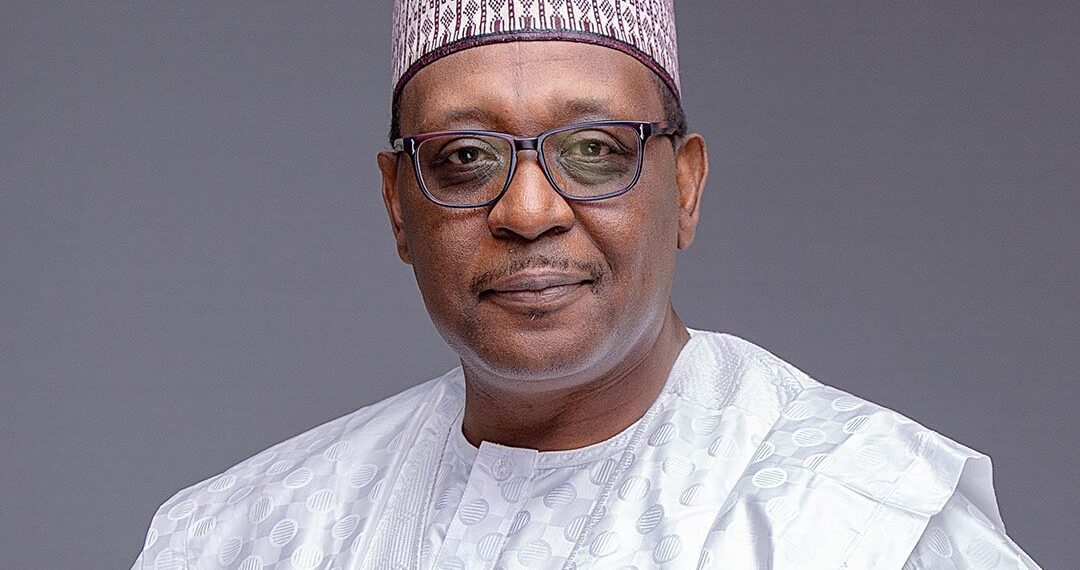News
Nigeria to vaccinate 7.7m girls against cancer

Nigeria on Tuesday introduced the human papillomavirus (HPV) vaccine into its routine immunisation system, aiming to reach 7.7 million girls.
This is the largest number in a single round of HPV vaccination in the African region in a vaccination drive against the virus that causes nearly all cases of cervical cancer.
A joint statement on Tuesday by Cirũ Kariũki for Gavi, the Vaccine Alliance; Anike Alli-Hakeem for the United Nations Children’s Fund and Charity Warigon for the World Health Organization noted that girls aged 9–14 years will receive a single dose of the vaccine, which is highly efficacious in preventing infection with HPV types 16 and 18, which are known to cause at least 70% of cervical cancers.
In Nigeria, cervical cancer is the third most common cancer and the second most frequent cause of cancer deaths among women aged between 15 and 44. In 2020 – the latest year for which data is available – the country recorded 12,000 new cases and 8,000 deaths from cervical cancer.
“The loss of about 8000 Nigerian women yearly from a disease that is preventable is completely unacceptable,” said Muhammad Ali Pate, the Coordinating Minister of Health & Social Welfare.
“Cervical cancer is mostly caused by HPV, and parents can avoid physical and financial pain by protecting their children with a single dose of the vaccine. Saving lives, and producing quality health outcomes and protecting the wellbeing of Nigerians are central to the Renewed Health Agenda of President Bola Ahmed Tinubu. The onset of the vaccination campaign is an opportunity to safeguard our girls from the scourge of cervical cancers many years into the future. As a parent myself, I have four daughters, all of them have had the same HPV vaccine to protect them against cervical cancer. I’d like to implore fellow parents to dutifully ensure that this generation of our girls disrupt the preventable loss of lives to cervical cancer in addition to other untold hardship, loss, and pain.”
READ ALSO: Nigerian govt unveils three policies to fight cancer
The statement also noted that a five-day mass vaccination campaign in schools and communities will be carried out during the inaugural roll-out in 16 states and the Federal Capital Territory. “The vaccine will then be incorporated in routine immunisation schedules within health facilities. The second phase of the vaccination introduction is set to start in May 2024 in 21 states.
“The vaccine is being provided for free by the Federal Ministry of Health through the National Primary Health Care Development Agency with support from Gavi, the Vaccine Alliance, United Nations Children’s Fund (UNICEF), World Health Organization (WHO) and other partners.
“With support from WHO country office in Nigeria and other partners, more than 35,000 health workers have so far been trained in preparation for the campaign and subsequent vaccine delivery in all health facilities. Vaccination sites have been established in all 4,163 wards across the 16 states included in the phase one roll-out, to ensure no eligible girl is left behind. Mobile vaccination units have also been set up to ensure that remote communities can access the vaccine.
“This is a pivotal moment in Nigeria’s efforts to lower the burden of cervical cancer – one of the few cancers which can potentially be eliminated through vaccination,” says Dr Walter Kazadi Mulombo, WHO Representative in Nigeria.
WHO recommends that HPV vaccination is included in the national immunisation programmes of countries where cervical cancer is a public health priority, where its cost-effective and sustainable implementation is feasible. As such, Nigeria has prioritised the addition of the vaccine to the country’s routine immunisation schedule.
“Every day, cervical cancer inflicts profound loss and devastation on families across Nigeria. It also disproportionately impacts the lives of women. And yet, it is a disease that can be prevented. With the HPV vaccine now available in Nigeria for eligible adolescent girls at no cost, communities now have the most effective tool to fight cervical cancer, and the nation has an opportunity, collectively, to save millions of lives,” says Thabani Maphosa, Managing Director of Country Programmes Delivery at Gavi.
More than 16 million girls could be protected in Nigeria alone by 2025. To support these efforts in Nigeria and in line with its goal to build sustainable immunisation programmes, Gavi is co-financing the cost of the vaccines and providing technical support for the introduction.
Join the conversation
Support Ripples Nigeria, hold up solutions journalism
Balanced, fearless journalism driven by data comes at huge financial costs.
As a media platform, we hold leadership accountable and will not trade the right to press freedom and free speech for a piece of cake.
If you like what we do, and are ready to uphold solutions journalism, kindly donate to the Ripples Nigeria cause.
Your support would help to ensure that citizens and institutions continue to have free access to credible and reliable information for societal development.
























